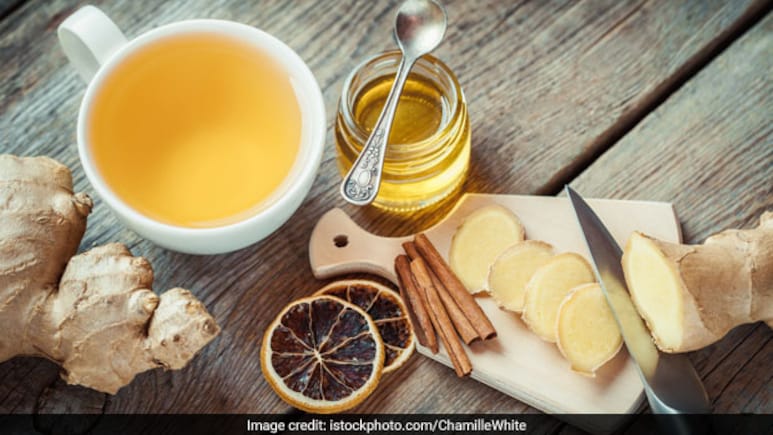
As the winds get colder from the season change, your body's needs change too. Scientists and traditional systems both suggest there's sense and measurable benefit in matching we you eat with the season. Modern reviews show that nutrition immensely influences your immunity. So, maintaining a diet keeping in mind the season can help you protect yourself from respiratory infections that are at peak during the colder months. In this article, we list some must-have foods to add to your diet as the season transitions into winter.
Try these desi foods to support your health as the days get colder
1. Amla
Amla also known as Indian gooseberry is very high in vitamin C and antioxidants; supports mucosal immunity and helps iron absorption. Great to boost defences as evenings turn cooler. Try fresh amla chutney or amla juice with warm water.
2. Turmeric
Curcumin and related compounds found in turmeric (haldi) modulate inflammation and may support immune signalling; used in Ayurveda to support seasonal resilience. Try golden milk (haldi doodh), turmeric-ginger dal tadka, or a pinch in sabzis.
3. Ginger
Adrak aids digestion which is important when appetite and food patterns change and soothes respiratory discomfort which is commonly recommended for seasonal colds. You can try ginger-tulsi tea, grated ginger in chutneys, or in sabzis and soups.
4. Seasonal greens
Local leafy greens such as sarson (mustard), spinach and bathua deliver iron, folate, A-provitamin carotenoids and fibre which help in supporting energy and gut health as activity and appetite change. Add sarson ka saag with bajra, simple palak sabzi, or leafy lentil stews to your diet.
5. Millets
Millets such as bajra, jowar and ragi are fibre-rich and have a lower glycemic load than polished rice. They're traditionally eaten in winter for warmth and sustained energy. Good for metabolic balance when routines shift. Try adding bajra roti, ragi porridge or millet khichdi.
6. Jaggery
Unlike refined sugar, jaggery supplies trace minerals like iron and potassium. When paired with nuts, it makes a seasonal energy snack that helps circulation and warmth. Eat a small piece of jaggery after meals or gur-and-sesame laddoo in colder months. To be avoided incase of diabetes.
7. Sesame seeds
Sesame seeds are calorie-dense, mineral-rich and considered warming in Ayurveda. Helps when the body needs more calories to maintain warmth. Try til chikki, roast sesame with jaggery, or use a little roasted sesame oil in finishing dals and sabzis.
8. Curd
Fermented foods like dahi support gut microbiota and thereby immune function. Enjoying cooler months with richer foods can benefit you by maintaining digestive flora. You can try plain dahi with jeera, chaas with ginger and coriander, or lassi after heavy meals.
9. Citrus fruits
Citrus fruits bolster vitamin C intake which is useful during respiratory season peaks and their refreshing acidity aids digestion during dietary shifts. Fresh mosambi juice, orange segments in salads, or a squeeze of lime in warm water.
10. Desi lentils
Light dals like moong are easy to digest which is helpful at season change. They also supply plant protein and are versatile vehicles for adding spices, ghee and greens which are all season-friendly. Moong dal khichdi, dal-tadka with ginger and spinach, or sprouted moong salad are a great way to incorporate these lentils in your diet.
Season-aware eating is a practice embedded in Ayurveda and supported by contemporary nutrition science as it gives you fresher nutrients, digestive balance and immune support when you need it most. Small, culturally familiar swaps are easy steps to stay healthier as the weather turns.
Disclaimer: This content including advice provides generic information only. It is in no way a substitute for a qualified medical opinion. Always consult a specialist or your doctor for more information. NDTV does not claim responsibility for this information.
References
Ritucharya: Answer to the lifestyle disorders. AYU (An International Quarterly Journal of Research in Ayurveda). 2011.
Ingestion, Immunity and Infection: Nutrition and Viral Respiratory Tract Infections. Frontiers in Immunology. 2022.
Seasonality and dietary requirements: will eating seasonal food contribute to health and environmental sustainability? Proceedings of the Nutrition Society / Cambridge University Press. 2014.
Dietary Guidelines for Indians (National Institute of Nutrition). NIN (Hyderabad). Dietary Guidelines document. 2024.
Track Latest News Live on NDTV.com and get news updates from India and around the world

